
| Born | 11 November 1888 Mecca |
|---|---|
| Died | 22 December 1958 (aged 70) Delhi, India |
Maulana Abul Kalam Muhiyuddin was an Indian Muslim scholar and a senior political leader of the Indian independence movement, who lived from 11 November 1888 – 22 February 1958. He was one of the most prominent Muslim leaders to support Hindu-Muslim unity, opposing the partition of India on communal lines. Following India's independence, he became the first Minister of Education in the Indian government. He is commonly remembered as Maulana Azad; he had adopted Azad (Free) as his pen name. His contribution to establishing the education foundation of India is recognised by celebrating his birthday as National Education Day across India. He was awarded the India's highest civilian award Bharat Ratna in 1992.


As a young man, Azad composed poetry in Urdu as well as treatises on religion and philosophy. He rose to prominence through his work as a journalist, publishing works critical of the British Raj and espousing the causes of Indian nationalism. Azad became the leader of the Khilafat Movement during which he came into close contact with Indian leader Mahatma Gandhi.

Azad became an enthusiastic supporter of Gandhi's ideas of non-violent civil disobedience, and worked actively to organise the Non-cooperation movement in protest of the 1919 Rowlatt Acts. Azad committed himself to Gandhi's ideals, including promoting Swadeshi (Indigenous) products and the cause of Swaraj (Self-rule) for India. He would become the youngest person to serve as the President of the Indian National Congress in 1923.

Formal opening of the National Library, on 1st February 1953
Above: ( L to R ) Dr. B. C. Roy, the Maulana Abul Kalam Azad, Dr. H.C. Mukherjee, Dr. S. S. Bhatnagar, Prof. Humayun Kabir and Sri B.S. Kesavan.

Azad was one of the main organisers of the Dharasana Satyagraha in 1931, and emerged as one of the most important national leaders of the time, prominently leading the causes of Hindu-Muslim unity as well as espousing secularism and socialism. He served as Congress President from 1940 to 1945, during which the Quit India rebellion was launched and Azad was imprisoned with the entire Congress leadership for three years. Azad became the most prominent Muslim opponent of the demand for a separate Muslim state of Pakistan and served in the interim national government. Amidst communal turmoil following the partition of India, he worked for religious harmony. As India's Education Minister, Azad oversaw the establishment of a national education system with free primary education and modern institutions of higher education. He is also credited with the establishment of the Indian Institutes of Technology and the foundation of the University Grants Commission, an important institution to supervise and advance the higher education in the nation.
Early life
Azad's family descended from a line of eminent Ulama or scholars of Islam, hailing from Herat (now in western Afghanistan) and had settled in India during the reign of the Mughal emperor Babur. His mother was of Arab descent, the daughter of Shaikh Muhammad Zahir Watri, and his father, Maulana Khairuddin was, then living in Bengal, was from Herat. The family lived in the Bengal region until Maulana Khairuddin left India during the First Indian War of Independence and settled in Mecca, the holiest city in Islam, where he met his wife.
Azad mastered several languages, including Urdu, Arabic, Hindko, Persian, and Hindi. He was also trained in the subjects of Hanafi fiqh , shariat , mathematics, philosophy, world history and science by reputed tutors hired by his family. An avid and determined student, the precocious Azad was running a library, a reading room, a debating society before he was twelve, wanted to write on the life of Ghazali at twelve, was contributing learned articles to Makhzan (the best known literary magazine of the day) at fourteen, was teaching a class of students, most of whom were twice his age, when he was merely fifteen and succeeded in completing the traditional course of study at the young age of sixteen, nine years ahead of his contemporaries, and brought out a magazine at the same age. In fact, in the field of journalism, he was publishing a poetical journal (Nairang-e-Aalam) and was already an editor of a weekly (Al-Misbah), in 1900, at the age of twelve and, in 1903, brought out a monthly journal, Lissan-us-Sidq, which soon gained popularity. At the age of thirteen, he was married to a young Muslim girl, Zuleikha Begum. Azad was, more closer, a follower of the Ahl-e-Hadith school and compiled many treatises reinterpreting the Qur'an, the Hadith, and the principles of Fiqh and Kalam.
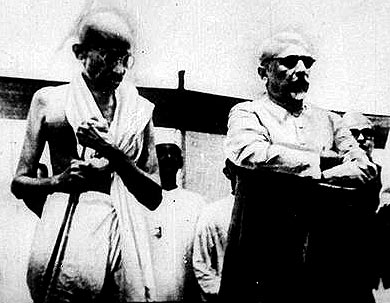
A young man, Azad was also exposed to the modern intellectual life of Kolkata, the then capital of British-ruled India and the centre of cultural and political life. He began to doubt the traditional ways of his father and secretly diversified his studies. Azad learned English through intensive personal study and began learning Western philosophy, history and contemporary politics by reading advanced books and modern periodicals. Azad grew disillusioned with Islamic teachings and was inspired by the modern views of Muslim educationalist Sir Syed Ahmed Khan, who had promoted rationalism. Increasingly doubtful of religious dogma, Azad entered a period of self-described "atheism" and "sinfulness" that lasted for almost a decade.
Revolutionary and journalist
Azad developed political views considered radical for most Muslims of the time and became a full-fledged Indian nationalist. He fiercely criticised the British for racial discrimination and ignoring the needs of common people across India. He also criticised Muslim politicians for focusing on communal issues before the national interest and rejected the All India Muslim League's communal separatism. Azad developed curiosity and interest in the pan-Islamic doctrines of Jamal al-Din al-Afghani and visited Afghanistan, Iraq, Egypt, Syria and Turkey. But his views changed considerably when he met revolutionary activists in Iraq and was influence by their fervent anti-imperialism and nationalism. Against common Muslim opinion of the time, Azad opposed the partition of Bengal in 1905 and became increasingly active in revolutionary activities, to which he was introduced by the prominent Hindu revolutionaries Sri Aurobindo and Shyam Sundar Chakravarthy. Azad initially evoked surprise from other revolutionaries, but Azad won their praise and confidence by working secretly to organise revolutionaries activities and meetings in Bengal, Bihar and Mumbai (then Bombay).
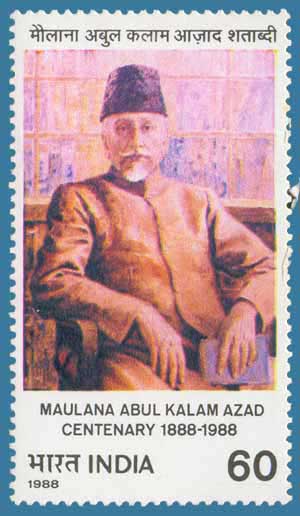
Azad's education had been shaped for him to become a cleric, but his rebellious nature and affinity for politics turned him towards journalism. He established an Urdu weekly newspaper in 1912 called Al-Hilal and openly attacked British policies while exploring the challenges facing common people. Espousing the ideals of Indian nationalism, Azad's publications were aimed at encouraging young Muslims into fighting for independence and Hindu-Muslim unity. His work helped improve the relationship between Hindus and Muslims in Bengal, which had been soured by the controversy surrounding the partition of Bengal and the issue of separate communal electorates.
With the onset of World War I, the British stiffened censorship and restrictions on political activity. Azad's Al-Hilal was consequently banned in 1914 under the Press Act. Azad started a new journal, the Al-Balagh, which increased its active support for nationalist causes and communal unity. In this period Azad also became active in his support for the Khilafat agitation to protect the position of the Sultan of Ottoman Turkey, who was the caliph for Muslims worldwide. The Sultan had sided against the British in the war and the continuity of his rule came under serious threat, causing distress amongst Muslim conservatives.
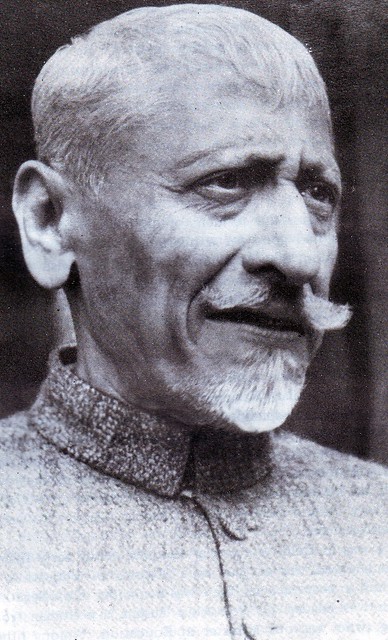
Azad saw an opportunity to energise Indian Muslims and achieve major political and social reform through the struggle. With his popularity increasing across India, the government outlawed Azad's second publication under the Defence of India Regulations Act and arrested him. The governments of the Bombay Presidency, United Provinces, Punjab and Delhi prohibited his entry into the provinces and Azad was moved to a jail in Ranchi, where he was incarcerated until 1 January 1920.
Non-cooperation

Khilafat movement procession.
Upon his release, Azad returned to a political atmosphere charged with sentiments of outrage and rebellion against British rule. The Indian public had been angered by the passage of the Rowlatt Acts in 1919, which severely restricted civil liberties and individual rights. Consequently, thousands of political activists had been arrested and many publications banned. The killing of unarmed civilians at Jallianwala Bagh in Amritsar on 13 April 1919 had provoked intense outrage all over India, alienating most Indians, including long-time British supporters from the authorities. The Khilafat struggle had also peaked with the defeat of the Ottoman Empire in World War I and the raging Turkish War of Independence, which had made the caliphate's position precarious. India's main political party, the Indian National Congress came under the leadership of Mahatma Gandhi, who had aroused excitement all over India when he led the farmers of Champaran and Kheda in a successful revolt against British authorities in 1918. Gandhi organised the people of the region and pioneered the art of Satyagraha — combining mass civil disobedience with complete non-violence and self-reliance.

Taking charge of the Congress, Gandhi also reached out to support the Khilafat struggle, helping to bridge Hindu-Muslim political divides. Azad and the Ali brothers warmly welcomed Congress support and began working together on a programme of non-cooperation by asking all Indians to boycott British-run schools, colleges, courts, public services, the civil service, police and military. Non-violence and Hindu-Muslim unity were universally emphasized, while the boycott of foreign goods, especially clothes were organised. Azad joined the Congress and was also elected president of the All India Khilafat Committee. Although Azad and other leaders were soon arrested, the movement drew out millions of people in peaceful processions, strikes and protests.
This period marked a transformation in Azad's own life. Along with fellow Khilafat leaders Dr. Mukhtar Ahmad Ansari, Hakim Ajmal Khan and others, Azad grew personally close to Gandhi and his philosophy. The three men founded the Jamia Millia Islamia in Delhi as an institution of higher education managed entirely by Indians without any British support or control. Both Azad and Gandhi shared a deep passion for religion and Azad developed a close friendship with him.
He adopted the Prophet Muhammad's ideas by living simply, rejecting material possessions and pleasures. He began to spin his own clothes using khadi on the charkha, and began frequently living and participating in the ashrams organised by Gandhi. Becoming deeply committed to ahimsa (non-violence) himself, Azad grew close to fellow nationalists like Jawaharlal Nehru, Chittaranjan Das and Subhash Chandra Bose. He strongly criticised the continuing suspicion of the Congress amongst the Muslim intellectuals from the Aligarh Muslim University and the Muslim League.

The rebellion began a sudden decline when with rising incidences of violence; a nationalist mob killed 22 policemen in Chauri Chaura in 1922. Fearing degeneration into violence, Gandhi asked Indians to suspend the revolt and undertook a five day fast to repent and encourage others to stop the rebellion. Although the movement stopped all over India, several Congress leaders and activists were disillusioned with Gandhi. The following year, the caliphate was overthrown by Mustafa Kemal Atatürk and the Ali brothers grew distant and critical of Gandhi and the Congress. Azad's close friend Chittaranjan Das co-founded the Swaraj Party, breaking from Gandhi's leadership. Despite the circumstances, Azad remained firmly committed to Gandhi's ideals and leadership. In 1923, he became the youngest man to be elected Congress President. Azad led efforts to organise the Flag Satyagraha in Nagpur. Azad served as president of the 1924 Unity Conference in Delhi, using his position to work to re-unite the Swarajists and the Khilafat leaders under the common banner of the Congress. In the years following the movement, Azad travelled across India, working extensively to promote Gandhi's vision, education and social reform.
At Simla Conference (1946) with Rajendra Prasad, Jinnah and C. Rajagopalachari
Azad became an important national leader, and served on the Congress Working Committee and in the offices of general secretary and president many times. The political environment in India re-energised in 1928 with nationalist outrage against the Simon Commission appointed to propose constitutional reforms. The commission included no Indian members and did not even consult Indian leaders and experts. In response, the Congress and other political parties appointed a commission under Motilal Nehru to propose constitutional reforms from Indian opinions. In 1928, Azad endorsed the Nehru Report, which was criticised by the Ali brothers and Muslim League politician Muhammad Ali Jinnah. Azad endorsed the ending of separate electorates based on religion, and called for an independent India to be committed to secularism. At the 1928 Congress session in Guwahati, Azad endorsed Gandhi's call for dominion status for India within a year. If not granted, the Congress would adopt the goal of complete political independence for India. Despite his affinity for Gandhi, Azad also drew close to the young radical leaders Jawaharlal Nehru and Subhash Bose, who had criticised the delay in demanding full independence. Azad developed a close friendship with Nehru and began espousing socialism as the means to fight inequality, poverty and other national challenges.
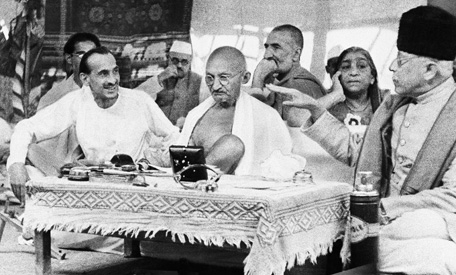
When Gandhi embarked on the Dandi Salt March that inaugurated the Salt Satyagraha in 1930, Azad organised and led the nationalist raid, albeit non-violent on the Dharasana salt works in order to protest the salt tax and restriction of its production and sale. The biggest nationalist upheaval in a decade, Azad was imprisoned along with millions of people, and would frequently be jailed from 1930 to 1934 for long periods of time. Following the Gandhi-Irwin Pact in 1934, Azad was amongst millions of political prisoners released. When elections were called under the Government of India Act 1935, Azad was appointed to organise the Congress election campaign, raising funds, selecting candidates and organising volunteers and rallies across India Azad had criticised the Act for including a high proportion of un-elected members in the central legislature, and did not himself contest a seat. He again declined to contest elections in 1937, and helped head the party's efforts to organise elections and preserve coordination and unity amongst the Congress governments elected in different provinces.

At the 1936 Congress session in Lucknow, Azad was drawn into a dispute with right-wing Congressmen Sardar Vallabhbhai Patel, Dr. Rajendra Prasad and Chakravarthi Rajagopalachari regarding the espousal of socialism as the Congress goal. Azad had backed the election of Nehru as Congress President, and supported the resolution endorsing socialism. In doing so, he aligned with Congress socialists like Nehru, Subhash Bose and Jayaprakash Narayan. Azad also supported Nehru's re-election in 1937, at the consternation of many conservative Congressmen. Azad supported dialogue with Jinnah and the Muslim League between 1935 and 1937 over a Congress-League coalition and broader political cooperation. Less inclined to brand the League as obstructive, Azad nevertheless joined the Congress's vehement rejection of Jinnah's demand that the League be seen exclusively as the representative of Indian Muslims.
Quit India
In 1938, Azad served as an intermediary between the supporters of Gandhi and the Congress faction led by Congress President Subhash Bose, who criticised Gandhi for not launching another rebellion against the British and sought to move the Congress away from Gandhi's leadership. Azad stood by Gandhi with most other Congress leaders, but reluctantly endorsed the Congress's exit from the assemblies in 1939 following the inclusion of India in World War II. Nationalists were infuriated that the viceroy had entered India into the war without consulting national leaders. Although willing to support the British effort in return for independence, Azad sided with Gandhi when the British ignored the Congress overtures. Azad's criticism of Jinnah and the League intensified as Jinnah called Congress rule in the provinces as "Hindu Raj," calling the resignation of the Congress ministries as a "Day of Deliverance" for Muslims. Jinnah and the League's separatist agenda was gaining popular support amongst Muslims. Muslim religious and conservative leaders criticised Azad as being too close to the Congress and placing politics before faith As the Muslim League adopted a resolution calling for a separate Muslim state in its session in Lahore in 1940, Azad was elected Congress President in its session in Ramgarh. Speaking vehemently against Jinnah's Two-Nation Theory — the notion that Hindus and Muslims were distinct nations — Azad lambasted religious separatism and exhorted all Muslims to preserve a united India, as all Hindus and Muslims were Indians who shared deep bonds of brotherhood and nationhood. In his presidential address, Azad said:
"...Full eleven centuries have passed by since then. Islam has now as great a claim on the soil of India as Hinduism. If Hinduism has been the religion of the people here for several thousands of years Islam also has been their religion for a thousand years. Just as a Hindu can say with pride that he is an Indian and follows Hinduism, so also we can say with equal pride that we are Indians and follow Islam. I shall enlarge this orbit still further. The Indian Christian is equally entitled to say with pride that he is an Indian and is following a religion of India, namely Christianity."

In face of increasing popular disenchantment with the British across India, Gandhi and Patel advocated an all-out rebellion demanding immediate independence. The situation had grown precarious as the Japanese conquered Burma and approached India's borders, which left Indians insecure but resentful of the British inability to protect India. Azad was wary and skeptical of the idea, aware that India's Muslims were increasingly looking to Jinnah and had supported the war. Feeling that a struggle would not force a British exit, Azad and Nehru warned that such a campaign would divide India and make the war situation even more precarious. Intensive and emotional debates took place between Azad, Nehru, Gandhi and Patel in the Congress Working Committee's meetings in May and June 1942. In the end, Azad became convinced that decisive action in one form or another had to be taken, as the Congress had to provide leadership to India's people and would lose its standing if it did not.
Supporting the call for the British to "Quit India," Azad began exhorting thousands of people in rallies across the nation to prepare for a definitive, all-out struggle. As Congress President, Azad travelled across India and met with local and provincial Congress leaders and grass-roots activists, delivering speeches and planning the rebellion. Despite their previous differences, Azad worked closely with Patel and Dr. Rajendra Prasad to make the rebellion as effective as possible. On 7 August 1942 at the Gowalia Tank in Mumbai, Congress President Azad inaugurated the struggle with a vociferous speech exhorting Indians into action. Just two days later, the British arrested Azad and the entire Congress leadership. While Gandhi was incarcerated at the Aga Khan Palace in Pune, Azad and the Congress Working Committee were imprisoned at a fort in Ahmednagar, where they would remain under isolation and intense security for nearly four years. Outside news and communication had been largely prohibited and completely censored. Although frustrated at their incarceration and isolation, Azad and his companions attested to feeling a deep satisfaction at having done their duty to their country and people.

Azad occupied the time playing bridge and acting as the referee in tennis matches played by his colleagues. In the afternoons, Azad began working on his classic Urdu work, the Ghubhar-i-Khatir. Sharing daily chores, Azad also taught the Persian and Urdu languages, as well as Indian and world history to several of his companions. The leaders would generally avoid talking of politics, unwilling to cause any arguments that could exacerbate the pain of their imprisonment. However, each year on 26 January, the leaders would gather to remember their cause and pray together. Azad, Nehru and Patel would briefly speak about the nation and the future. Azad and Nehru proposed an initiative to forge an agreement with the British in 1943. Arguing that the rebellion had been mis-timed, Azad attempted to convince his colleagues that the Congress should agree to negotiate with the British and call for the suspension of disobedience if the British agreed to transfer power. Although his proposal was overwhelmingly rejected, Azad and a few others agreed that Gandhi and the Congress had not done enough. When they learnt of Gandhi holding talks with Jinnah in Mumbai in 1944, Azad criticised Gandhi's move as counter-productive and ill-advised.


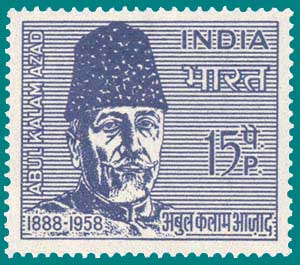

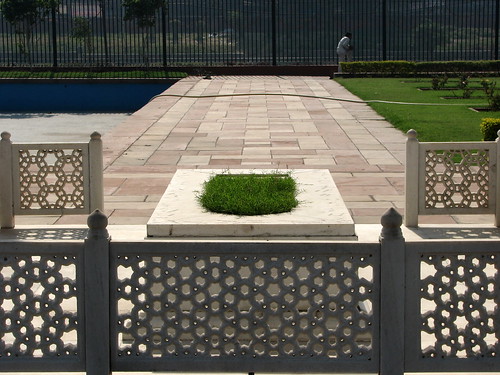
اللہ رب العزت حضرت مولانا ابوالکلام محی الدین رحمۃ اللہ علیہ کو جنت الفردوس میں اعلیٰ مقام عطاء فرمائے (آمین)
ReplyDeleteMay God bless his noble soul.
DeleteGood website! I truly love how it is easy on my eyes it is. I am wondering how I might be notified whenever a new post has been made. I have subscribed to your RSS which may do the trick? Have a great day! Hbse 12th result 2018
ReplyDelete